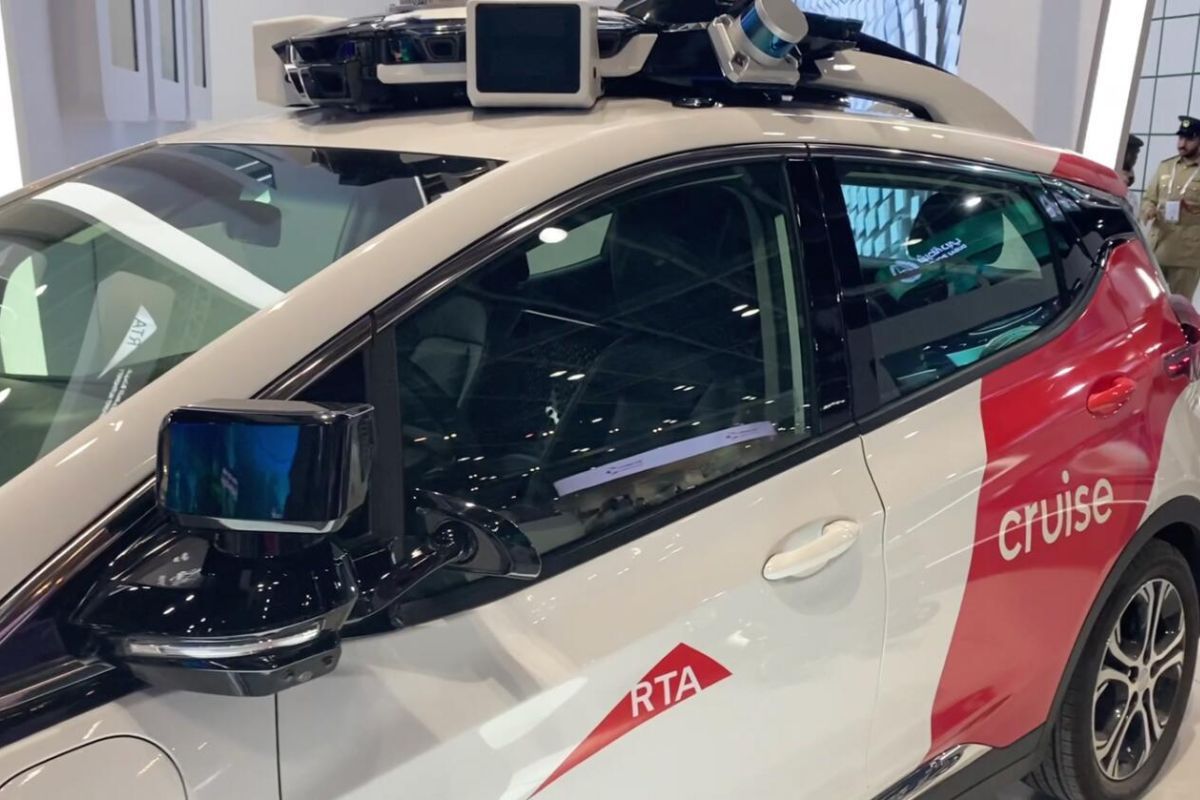First look of Dubai's driverless taxi

Self-driving trips will be affordable, top RTA official says at Gitex 2022
You can soon hail driverless taxis on Dubai streets. A testing model of the all-electric self-driving vehicle built on the Chevrolet Bolt platform is on display at Gitex Global 2022, which began on Monday.
Atop the red and white hatchback car is an array of cameras. Here is a close-up video of the self-driving car on display at the Roads and Transport Authority (RTA) stand at Gitex Global.
What’s more, the fare will be ‘affordable’, according to a senior official of the RTA.
“The fare will be similar to that of a limousine service in Dubai,”
said Khali Al Awadhi, director of transportation systems, Public Transport Authority, RTA.
The authority is on track to meet its targeted deadline for the taxi’s rollout.
“Around five of these vehicles will be on the roads starting from December this year doing the final testing and completing the mapping services.”
As per the RTA, the model on display at Gitex is a testing one of the self-driving cars that will hit the streets by next year. It is expected that the final vehicle will have four seats at the back facing each other.
By December this year, UAE residents will be able to see the first driverless taxis in their testing phase in Jumeirah, around the City Walk area. Dubai would be the first city to operate Cruise autonomous vehicles outside the US.
Also Read: City Walk Dubai - Why You Must visit City Walk
While the camera recognises the size, shape and colour of the objects nearby, the radar will provide a 360-degree view.
The advanced LiDAR technology is what helps the self-driving cars ‘see’. By shooting laser beams, it can gauge velocity and other intricate details to get its surroundings accurate down to centimetres.
In place of the sideview mirror is a lidar sensor, an articulating radar as well as a camera.
Earlier this year, the RTA and General Motors-backed Cruise began operating two Chevrolet Bolt electric vehicles (EVs) to prepare digital maps for self-driving vehicles. The process was a prelude for the launch of the actual driverless taxi and e-hail services by 2023.
Cruise’s technology uses a high-resolution map of the physical environment, which is created using specialised mapping vehicles equipped with a suite of sensors including LiDAR, camera, and others. They are driven throughout the city to collect data, which is then used to create and maintain a navigable map for autonomous vehicles (AVs).
News Source: Khaleej Times
